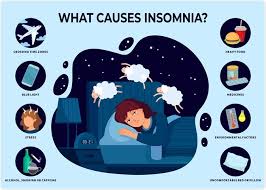The Link Between Alcohol and Depression
Alcohol consumption is often associated with social gatherings, celebrations, and relaxation. However, excessive or prolonged alcohol use can have serious consequences on mental health, particularly in relation to depression.
Depression is a common mental health disorder characterized by persistent feelings of sadness, hopelessness, and loss of interest in activities. While alcohol may initially provide a temporary escape from negative emotions, it can exacerbate symptoms of depression in the long run.
Alcohol is a depressant that affects the central nervous system, altering brain chemistry and neurotransmitter levels. Regular alcohol consumption can disrupt the balance of neurotransmitters like serotonin and dopamine, which play key roles in regulating mood and emotions.
Individuals struggling with depression may turn to alcohol as a form of self-medication to numb emotional pain or alleviate symptoms. However, this coping mechanism can lead to a vicious cycle where alcohol worsens depressive symptoms and impairs overall mental well-being.
Moreover, excessive alcohol consumption can impact sleep patterns, energy levels, cognitive function, and overall quality of life – all factors that are closely linked to mental health outcomes. Chronic alcohol abuse can also contribute to feelings of guilt, shame, isolation, and low self-esteem, further fueling the cycle of depression.
It is essential for individuals experiencing depression or using alcohol as a coping mechanism to seek professional help. Treatment options may include therapy, counseling, medication management, support groups, and lifestyle changes aimed at promoting healthier coping strategies and habits.
By addressing both the underlying causes of depression and the patterns of alcohol use, individuals can work towards improving their mental health and overall well-being. It is important to remember that seeking help is a sign of strength and courage on the journey towards recovery.
9 Essential Tips for Managing Alcohol and Depression Effectively
- Limit alcohol consumption to moderate levels.
- Avoid using alcohol as a coping mechanism for depression.
- Seek professional help if you are struggling with alcohol and depression.
- Stay connected with supportive friends and family members.
- Engage in activities that promote mental well-being, such as exercise or hobbies.
- Practice mindfulness and relaxation techniques to manage stress.
- Consider therapy or counseling to address underlying issues contributing to depression.
- Ensure you get an adequate amount of sleep each night.
- Educate yourself about the potential risks of combining alcohol and depression medications.
Limit alcohol consumption to moderate levels.
Limiting alcohol consumption to moderate levels is a key tip in managing the potential link between alcohol and depression. By practicing moderation and being mindful of alcohol intake, individuals can reduce the negative impact on their mental health. Moderation allows for better control over alcohol’s effects on brain chemistry and mood regulation, promoting overall well-being and reducing the risk of exacerbating depressive symptoms. Choosing to consume alcohol in moderation can contribute to a healthier lifestyle and support mental health by minimizing the potential harmful consequences associated with excessive drinking.
Avoid using alcohol as a coping mechanism for depression.
It is crucial to avoid using alcohol as a coping mechanism for depression. While alcohol may provide temporary relief from negative emotions, it can worsen symptoms of depression in the long run. Instead of turning to alcohol, seek healthier coping strategies such as therapy, exercise, mindfulness practices, or engaging in activities that bring joy and fulfillment. Addressing the root causes of depression with professional help and developing positive coping mechanisms can lead to long-lasting improvements in mental health and overall well-being.
Seek professional help if you are struggling with alcohol and depression.
It is crucial to prioritize your well-being by seeking professional help if you are facing challenges with alcohol use and depression. Professional support can provide you with the guidance, resources, and strategies needed to address these complex issues effectively. Trained professionals can offer tailored treatment plans, therapy sessions, and interventions to help you navigate through the underlying causes of your struggles and work towards a healthier and more balanced lifestyle. Remember, reaching out for help is a courageous step towards healing and recovery.
Stay connected with supportive friends and family members.
Staying connected with supportive friends and family members is a crucial tip for managing alcohol-related depression. Building a strong support network can provide emotional reassurance, practical assistance, and a sense of belonging during challenging times. Trusted loved ones can offer understanding, encouragement, and perspective, helping individuals navigate the complexities of both alcohol use and depression. By fostering meaningful connections with those who care, individuals can feel less isolated, more empowered, and better equipped to address their mental health needs effectively.
Engage in activities that promote mental well-being, such as exercise or hobbies.
Engaging in activities that promote mental well-being, such as exercise or hobbies, can be a valuable tool in managing alcohol depression. Physical activity not only helps to release endorphins that elevate mood but also provides a sense of accomplishment and self-care. Pursuing hobbies or interests that bring joy and fulfillment can offer a much-needed distraction from negative thoughts and emotions, fostering a sense of purpose and satisfaction. By incorporating these positive activities into daily routines, individuals can proactively support their mental health while reducing the reliance on alcohol as a coping mechanism.
Practice mindfulness and relaxation techniques to manage stress.
To address the potential link between alcohol consumption and depression, it is beneficial to incorporate mindfulness and relaxation techniques into your daily routine. By practicing mindfulness, such as deep breathing exercises or meditation, you can cultivate a greater awareness of your thoughts and emotions, allowing you to manage stress more effectively. These techniques can help you develop healthier coping mechanisms and reduce the likelihood of turning to alcohol as a way to alleviate stress or negative emotions. Prioritizing self-care through mindfulness practices can contribute to improved mental well-being and may serve as a valuable tool in managing both stress and potential triggers for depression.
Consider therapy or counseling to address underlying issues contributing to depression.
Consider therapy or counseling as valuable resources to address the underlying issues contributing to depression in the context of alcohol use. Professional therapy provides a safe and supportive environment to explore and understand the root causes of depressive symptoms, as well as the relationship between alcohol consumption and mental health. Through therapy or counseling, individuals can develop healthier coping mechanisms, learn effective stress management techniques, and work towards building resilience against the cycle of alcohol-related depression. Seeking professional help is a proactive step towards achieving long-term mental well-being and breaking free from harmful patterns of behavior.
Ensure you get an adequate amount of sleep each night.
Ensuring you get an adequate amount of sleep each night is crucial when it comes to managing alcohol-related depression. Quality sleep plays a significant role in regulating mood, cognitive function, and overall mental well-being. By prioritizing restful and consistent sleep patterns, you can support your body’s natural processes of recovery and emotional regulation, which are essential in combating the negative effects of alcohol on mental health. Adequate sleep can also help improve concentration, energy levels, and resilience, providing a solid foundation for addressing depressive symptoms and promoting overall wellness.
Educate yourself about the potential risks of combining alcohol and depression medications.
It is crucial to educate yourself about the potential risks associated with combining alcohol and depression medications. Alcohol can interact negatively with certain antidepressants and mood stabilizers, reducing their effectiveness or causing harmful side effects. Understanding how alcohol can impact the way medications work in the body is essential for ensuring your mental health treatment plan is safe and effective. Always consult with your healthcare provider or pharmacist before consuming alcohol while taking depression medications to minimize any potential risks and prioritize your well-being.


